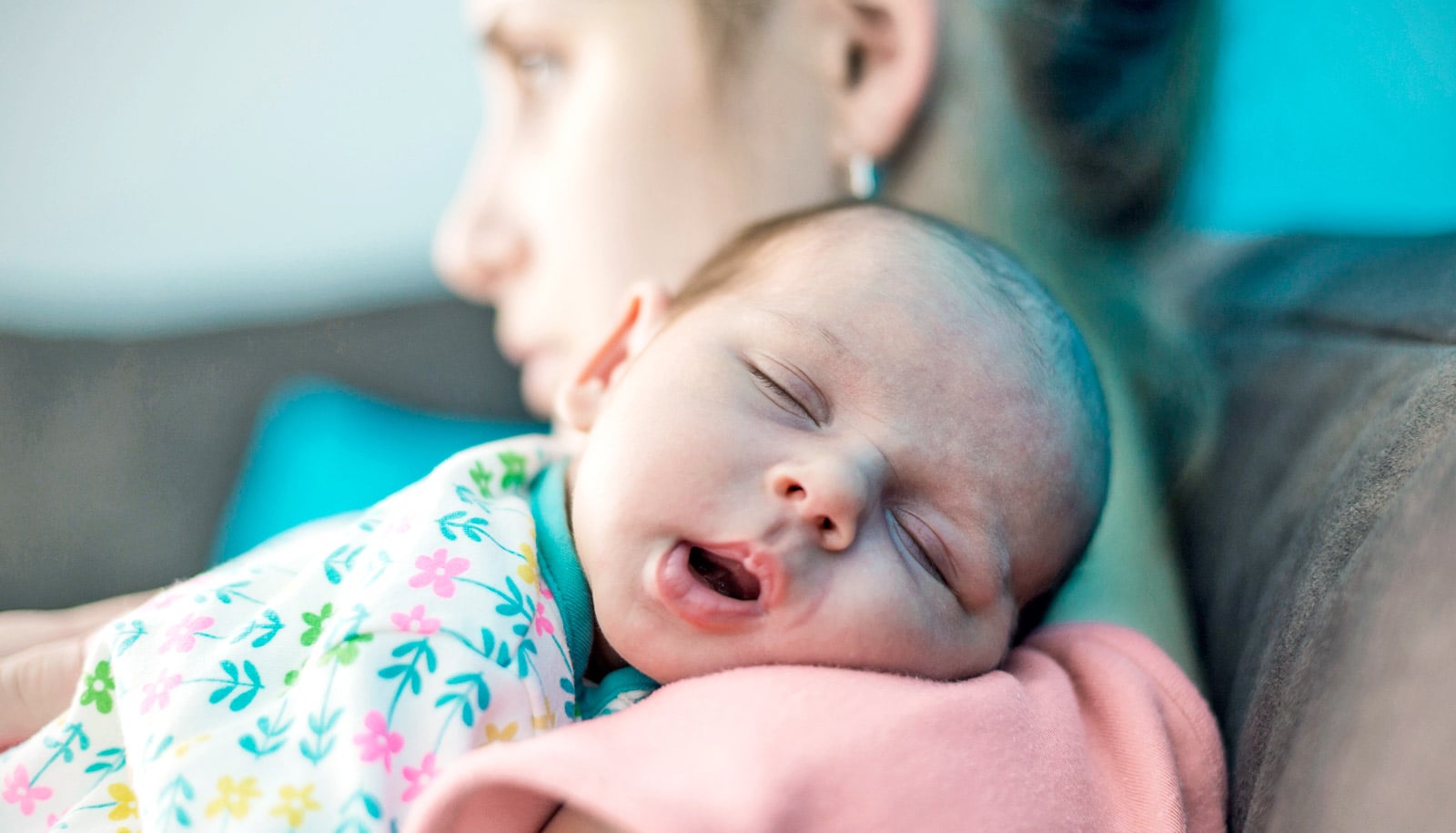Interviews with mother-grandmother pairs suggest that community surveillance of pregnancy and infant-feeding has increased between the generations. Many of the new mothers said they felt watched, evaluated, and judged.
Some also reported experiences of strangers questioning their choices during pregnancy and when feeding their babies. In the most extreme cases, strangers had regulated the behavior of pregnant women by restricting their access to food that they believed might harm the fetus.
“Our study found that today’s mothers can be subjected to increased surveillance compared to the generation before…,” says Aimee Grant of Cardiff University’s Centre for Trials Research, lead researcher on the study.
“This observation and interference by others can result in pregnant women and new mothers performing public motherhood in ways that are highly self-aware and self-conscious, which makes it difficult to follow advice from health professionals.”
Covering up
Participants reported a range of pressures to feed their babies in particular ways, including a general desire to breastfeed, as opposed to using formula. They reported questioning from family and strangers on their methods of infant-feeding during pregnancy and whether they were going to breastfeed, with both friends and family suggesting they should.
They also discussed an awareness of their visibility when feeding infants in public, or in the presence of family members, that related to breasts as sexual objects requiring covering at all times. Because of this, some of them attempted to perform a “good mother” role when breastfeeding infants in public, where they were aware of having an audience, by simultaneously demonstrating they were breastfeeding while showing as little as possible of their body.
By contrast, women who were formula feeding also tried to perform a “good mother” role by hiding formula packaging when preparing bottles in public.
The ‘food police’
The new mothers felt the most challenging form of surveillance was that from strangers, as they felt less able to control it. One recounted a visit to a café where the waiter acted “like the kinda food police” refusing to serve the afternoon tea she had ordered because of her “big belly” that showed she was pregnant. During her interview, this mother reported that she felt as though she, or at least her bump, was “everyone’s property.”
Time with kids carries extra strain for moms
All the new mothers admitted that comments and behavior from their family could influence their feelings towards infant-feeding and felt that the comments were judgments of their capability to look after their children.
One of the mothers talked about comments from family members about the frequency of her baby’s feeds and admitted that it made her question her ability to feed her baby properly.
Another recounted that a relative had told her she couldn’t drink alcohol on a night out because she was breastfeeding. She felt that this intervention was both intrusive and rude, particularly as she had already spoken to her health visitor regarding how she could safely feed her baby with breastmilk and drink alcohol on a night out. In addition, she recounted that friends also commented on her plans to drink alcohol, saying they would not judge her, but making her feel judged by doing so.
Based on the study’s findings, Grant is keen to highlight ways that the public can make it easier for pregnant women and new moms to get used to their roles. “Don’t touch a woman’s bump unless she has given you permission,” she advises. “Also, if you wouldn’t ask someone what they had for lunch, it probably isn’t appropriate for you to ask them questions about feeding their baby.”
The six mother/grandmother pairs were from deprived urban areas of South Wales. These areas were selected because of low rates of breastfeeding and high rates of public health intervention. The mothers’ youngest children were between six weeks and 25 months old. Mothers themselves were between 22 and 43 years old, and grandmothers between 42 and 74 years old.
The study appears in Families Relationships and Society.
Source: Cardiff University



